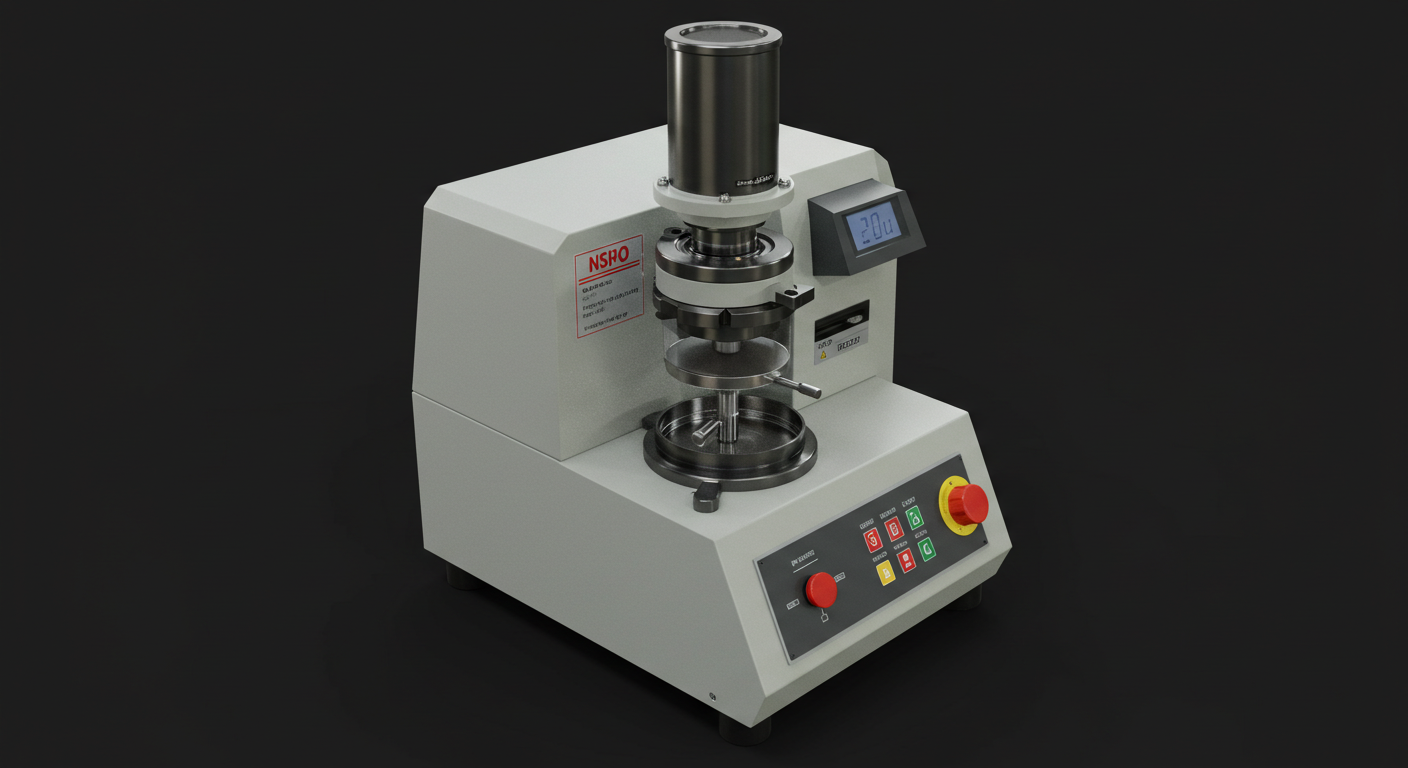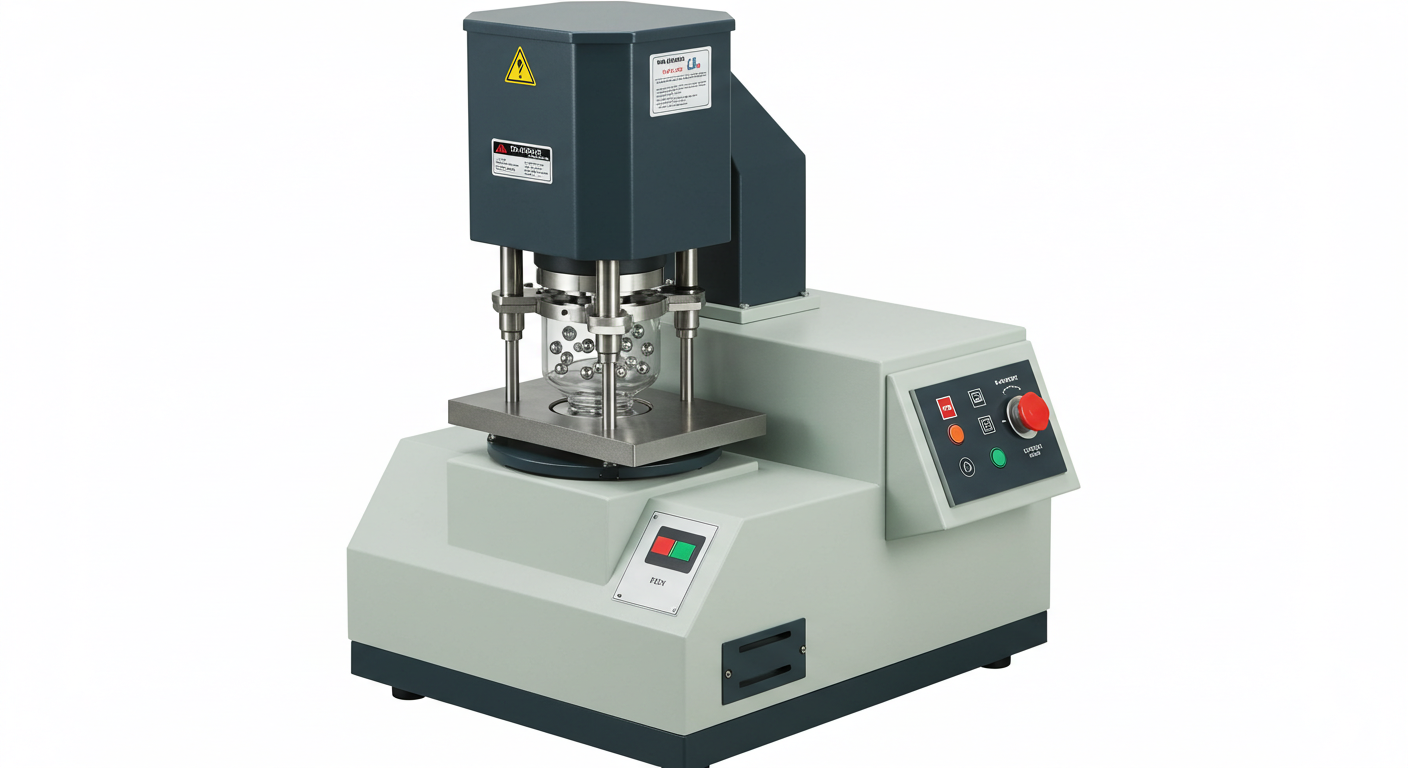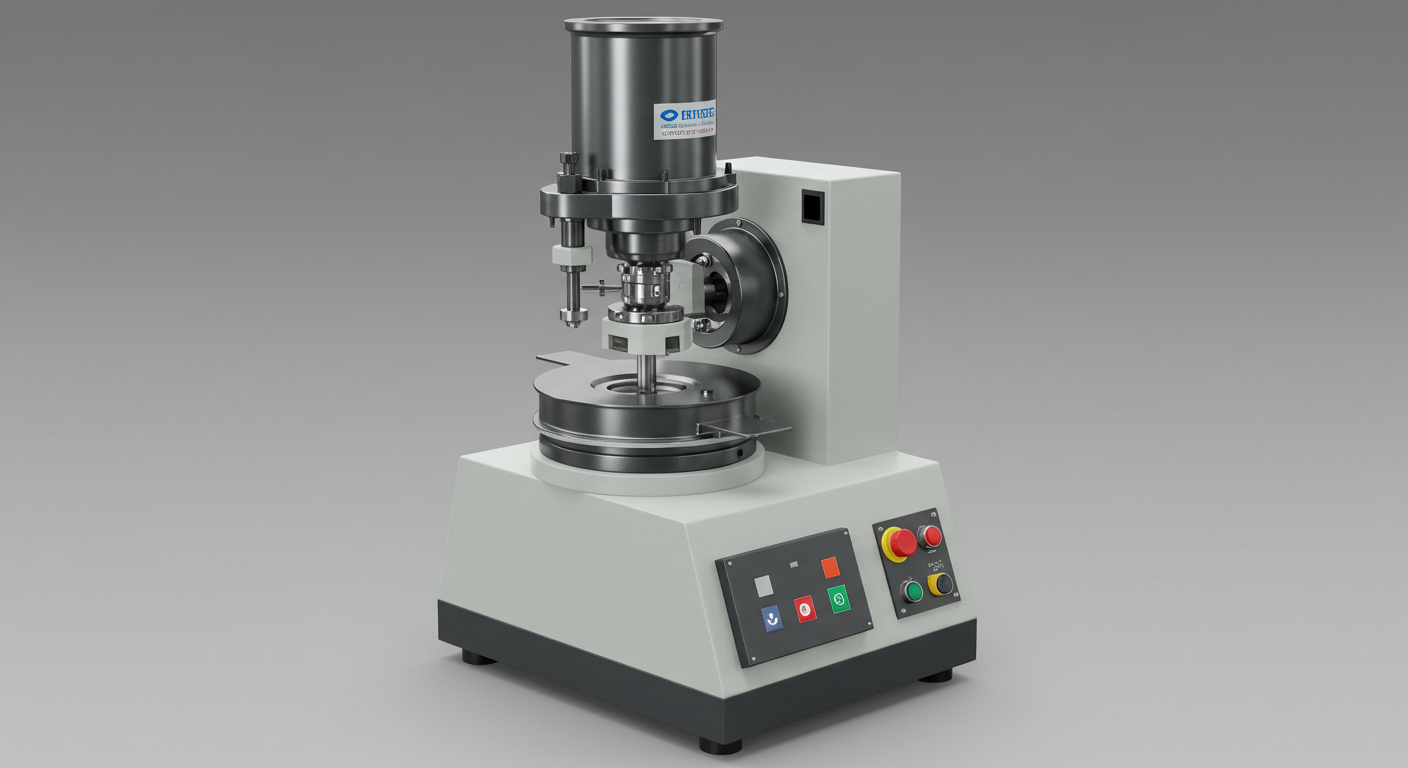The quest for finer particle sizes and homogeneous mixtures in materials science, chemistry, and pharmaceuticals often leads researchers and manufacturers to explore advanced milling techniques. Among these, planetary ball milling stands out as a versatile and effective method. At the heart of this process lie the grinding media, and for many applications, agate balls offer a superior solution due to their hardness, chemical inertness, and low contamination properties. This guide delves into the world of TOP 9 agate ball mill balls factory and planetary micro milling, exploring the principles, applications, and considerations for selecting the right equipment and media.

Understanding Planetary Ball Milling
The Planetary Ball Mill is a type of ball mill used to grind materials into extremely fine powders. It differs from traditional ball mills in its operation and efficiency. In a standard ball mill, a cylindrical vessel rotates around a single axis, causing the grinding media (balls) to cascade and impact the material being milled. A Planetary Ball Mill, on the other hand, utilizes a more complex motion. Several grinding jars are arranged on a rotating "sun" wheel. The jars themselves rotate around their own axes, typically in the opposite direction to the sun wheel. This combined rotational motion creates intense centrifugal forces, leading to high-energy impacts and efficient grinding. The relative movement of the grinding jars results in very high grinding speeds, leading to shorter grinding times and smaller particle sizes.
Key Advantages of Planetary Ball Milling:
Fine Particle Size Reduction: Achieves particle sizes in the nanometer range (depending on material and milling parameters).
Homogeneous Mixing: Excellent for blending different materials into uniform mixtures.
High Energy Impact: The intense forces accelerate grinding and enable the processing of hard and brittle materials.
Versatility: Suitable for a wide range of materials, including ceramics, metals, polymers, and pharmaceuticals.
Controllability: Precise control over milling parameters like speed, time, and ball-to-powder ratio.
Agate Ball Mill Balls: Properties and Advantages
Agate is a microcrystalline variety of silica (SiO2), known for its hardness, toughness, and chemical resistance. These properties make agate balls ideal grinding media for various applications. Here's a breakdown of their key advantages:
High Hardness: Agate is harder than many common materials, allowing it to efficiently grind even relatively hard substances.
Chemical Inertness: Agate is resistant to most acids and alkalis, preventing contamination of the milled material.
Low Contamination: Agate contributes minimal contamination to the final product, crucial in sensitive applications like pharmaceutical research.
Smooth Surface Finish: Reduces friction and wear during milling, extending the lifespan of the balls and jars.
Cost-Effectiveness: While not the cheapest option, agate offers a good balance of performance and cost for many applications.
When to Choose Agate Balls:
When contamination is a major concern.
When processing materials that are sensitive to chemical reactions.
When a smooth surface finish on the milled powder is required.
For general-purpose milling of a wide range of materials.
Factors to Consider When Selecting Agate Ball Mill Balls
Choosing the right agate balls for your Planetary Micro Mill is critical for achieving optimal milling results. Here are some key factors to consider:
Size: The size of the balls affects the grinding efficiency and the final particle size distribution. Smaller balls generally produce finer particles, while larger balls provide more aggressive grinding. A mixture of ball sizes is often used to optimize the milling process.
Shape: Spherical balls are the most common and generally provide the best performance.
Purity: Ensure that the agate balls are of high purity to minimize contamination. Look for balls that are certified to meet specific quality standards.
Density: Higher density balls will provide more impactful grinding.
Quantity (Ball-to-Powder Ratio): This ratio is crucial for efficient milling. A higher ratio leads to faster grinding but can also increase the risk of over-milling.
Exploring Planetary Micro Mills and Their Applications
Planetary Micro Mills are compact and efficient milling systems designed for small-scale research and development, quality control, and sample preparation. They are particularly well-suited for applications where precise control over particle size and contamination is essential. These mills are often used with agate jars and balls due to the material's properties. Applications include:
Nanomaterial Synthesis: Creating nanoparticles and nanomaterials with controlled size and morphology.
Pharmaceutical Research: Milling active pharmaceutical ingredients (APIs) to improve bioavailability and drug delivery.
Materials Science: Preparing samples for X-ray diffraction (XRD), scanning electron microscopy (SEM), and other analytical techniques.
Geological Sample Preparation: Pulverizing rocks and minerals for geochemical analysis.
Cosmetics: Milling pigments and other ingredients to achieve desired texture and color.
Chemical Reactions: Mechanochemistry – initiating or accelerating chemical reactions through mechanical force. Planetary Micro Mill can be used to achieve this goal.
Across International Planetary Ball Mill: A Closer Look
Across International Planetary Ball Mill is a well-regarded brand in the laboratory equipment market, known for their robust construction, reliable performance, and user-friendly controls. They offer a range of planetary ball mills suitable for various applications and sample sizes. These mills are designed for precise control over milling parameters and are compatible with a variety of grinding jars and media, including agate.
Features often found in Across International Planetary Ball Mill systems include:
Digital display for setting and monitoring speed and time.
Variable speed control for optimizing milling parameters.
Safety interlocks to prevent operation with open jars.
Cooling systems to prevent overheating during long milling runs.
Compatibility with different jar sizes and materials.
The Planetary Ball Mill Working Principle: A Deeper Dive
Understanding the Planetary ball mill working principle is key to optimizing milling parameters and achieving desired results. The grinding process in a planetary ball mill is a combination of impact, friction, and shear forces. As the jars rotate around the sun wheel and their own axes, the grinding balls are subjected to high centrifugal forces. These forces cause the balls to impact the material being milled with considerable energy. The constant friction and shear between the balls and the material further contribute to the grinding process. The relative movement of the grinding jars results in very high grinding speeds, leading to shorter grinding times and smaller particle sizes. The efficiency of the milling process depends on factors such as the speed of rotation, the ball-to-powder ratio, the size and density of the balls, and the properties of the material being milled.
Factors influencing the grinding process:
Rotation Speed: Higher speeds generally lead to faster grinding, but excessive speeds can cause overheating and damage to the equipment.
Ball-to-Powder Ratio: Optimizing this ratio is crucial for efficient milling. A higher ratio leads to faster grinding, but can also increase the risk of over-milling or contamination.
Ball Size: Larger balls provide more aggressive grinding, while smaller balls produce finer particles. A mixture of ball sizes is often used.
Milling Time: The optimal milling time depends on the material being milled and the desired particle size.
Grinding Media Material: The material of the grinding media needs to be chosen based on the hardness of the material, and the potential for contamination.
Laboratory Ball Mills: A Broader Perspective
Laboratory Ball mills encompass a wider range of milling equipment, including traditional ball mills, planetary ball mills, and other specialized milling systems. While planetary ball mills excel in achieving fine particle sizes and homogeneous mixing, other types of ball mills may be more suitable for specific applications. For example, a tumbling ball mill might be preferred for large-scale milling of relatively soft materials. The choice of ball mill depends on factors such as the desired particle size, the throughput requirements, and the properties of the material being milled.
Types of Laboratory Ball Mills:
Planetary Ball Mills: For fine grinding and homogeneous mixing.
Tumbling Ball Mills: For large-scale milling of relatively soft materials.
Vibratory Ball Mills: For rapid grinding of small samples.
Rod Mills: For producing a coarser product with a narrow particle size distribution.
PQ N2 Planetary Ball Mill: Innovations in Milling Technology
The PQ N2 planetary ball mill represents advancements in planetary ball milling technology, often incorporating features such as inert gas atmosphere control and automated parameter adjustment. The inert gas atmosphere is crucial when milling materials that are sensitive to oxidation or other atmospheric reactions. Automated parameter adjustment allows for precise control over the milling process, ensuring consistent and reproducible results. This type of mill might be used to prevent oxidation. PQ N2 planetary ball mill is a step towards improved control.
Key features of advanced planetary ball mills like the PQ N2 model:
Inert Gas Atmosphere Control: Prevents oxidation and other atmospheric reactions.
Automated Parameter Adjustment: Ensures consistent and reproducible results.
Real-time Monitoring: Provides data on temperature, pressure, and other parameters.
Advanced Cooling Systems: Prevents overheating during long milling runs.
High Energy Ball Mill: Pushing the Limits of Milling
A High energy ball mill is designed to deliver significantly higher impact forces than standard planetary ball mills, enabling the milling of extremely hard or resistant materials. These mills often employ specialized designs and materials to withstand the intense forces generated during milling. Applications include the synthesis of amorphous alloys, the creation of nanocomposites, and the mechanical alloying of dissimilar metals.
Characteristics of High Energy Ball Mills:
High Impact Forces: Enables milling of extremely hard materials.
Robust Construction: Withstands the intense forces generated during milling.
Specialized Grinding Media: Often uses high-density materials like tungsten carbide or zirconia.
Advanced Cooling Systems: Prevents overheating during extended milling runs.
Planetary Ball Mill Price: Investment Considerations
The Planetary Ball Mill price can vary significantly depending on factors such as the size, features, and manufacturer. Smaller, benchtop models are generally more affordable than larger, floor-standing systems. Advanced features such as inert gas atmosphere control and automated parameter adjustment also contribute to the overall cost. When evaluating the cost of a planetary ball mill, it is important to consider the long-term benefits, such as improved efficiency, reduced contamination, and the ability to process a wider range of materials.
Factors affecting the price of a Planetary Ball Mill:
Size and Capacity: Larger mills are generally more expensive.
Features and Functionality: Advanced features increase the price.
Manufacturer: Different manufacturers offer different price points.
Warranty and Support: A comprehensive warranty and reliable support can add value.
Ball Mill Manufacturers: Selecting a Reliable Supplier
Choosing a reputable Ball Mill manufacturers is crucial for ensuring the quality, reliability, and performance of your milling equipment. Look for manufacturers with a proven track record, a wide range of products, and excellent customer support. Consider factors such as the manufacturer's experience, reputation, and commitment to innovation. A reliable manufacturer will provide comprehensive technical support, training, and spare parts to ensure the long-term operation of your ball mill.
Key considerations when selecting a Ball Mill Manufacturer:
Experience and Reputation: Choose a manufacturer with a proven track record.
Product Range: Select a manufacturer that offers a wide range of ball mills.
Customer Support: Ensure that the manufacturer provides excellent technical support.
Warranty and Service: Look for a manufacturer that offers a comprehensive warranty.
Applications of Agate Balls with Planetary Ball Mill
Using agate grinding balls with a planetary ball mill serves many industrial purposes, here's a short list of some of them:
Ceramic Production: Agate balls help in achieving the desired particle size distribution for ceramic powders, leading to enhanced sintering and improved mechanical properties.
Cosmetics Manufacturing: Fine grinding of pigments and other ingredients ensures a smooth and consistent texture, enhancing the quality and appeal of cosmetic products.
Pharmaceutical Applications: Precise milling of active pharmaceutical ingredients (APIs) improves drug bioavailability and efficacy, contributing to better patient outcomes.
Materials Science: Agate balls are crucial for preparing samples for various analytical techniques like X-ray diffraction (XRD) and scanning electron microscopy (SEM), ensuring accurate and reliable results.
Nanomaterial Synthesis: Achieve consistent quality for nanoparticles and nanomaterials by reducing the risk of contamination, suitable for use in various advanced technological fields.
Agate Ball Mill: Understanding its importance
An agate ball mill is an essential tool for any industry that depends on high-quality grinding and milling processes. Its unique characteristics, such as minimal contamination and effective reduction of particles, make it ideal for delicate uses. Whether it's used to create nanoparticles, pharmaceutical formulations, or cosmetic components, the combination of an agate ball mill guarantees accuracy and consistency. Selecting the appropriate equipment and understanding how it works can dramatically boost manufacturing efficiency and product quality. Industries can achieve excellent outcomes and keep ahead in their respective fields by incorporating an agate ball mill into their manufacturing processes.
Conclusion: Optimizing Your Milling Process
Choosing the right Planetary Micro Mill, grinding media, and milling parameters is essential for achieving optimal results in materials processing. Agate balls offer a superior solution for many applications due to their hardness, chemical inertness, and low contamination properties. By understanding the Planetary ball mill working principle and carefully considering the factors outlined in this guide, researchers and manufacturers can optimize their milling processes and achieve the desired particle size and homogeneity. The TOP 9 agate ball mill balls factory provides a range of high-quality grinding media to meet the diverse needs of the milling community. Whether you are working with a standard planetary ball mill, a PQ N2 planetary ball mill, or a High energy ball mill, careful selection and optimization will lead to improved results and greater efficiency. Remember to consider the Planetary Ball Mill price in relation to its long-term benefits. Finding the right Ball Mill manufacturers is also key to obtaining reliable equipment and support.
TOP 9 agate ball mill balls factory : The List
| Name of factories | Ball Size | Material | Hardness |
|---|---|---|---|
| Factory 1 | 2mm to 20mm | Agate | 6.5-7 Mohs |
| Factory 2 | 5mm to 30mm | Agate | 6.5-7 Mohs |
| Factory 3 | 0.1mm to 30mm | Agate | 6.5-7 Mohs |
| Factory 4 | 0.1mm to 1mm | Agate | 6.5-7 Mohs |
| Factory 5 | 10mm to 30mm | Agate | 6.5-7 Mohs |
| Factory 6 | 2mm to 20mm | Agate | 6.5-7 Mohs |
| Factory 7 | 5mm to 30mm | Agate | 6.5-7 Mohs |
| Factory 8 | 0.1mm to 30mm | Agate | 6.5-7 Mohs |
| Factory 9 | 0.1mm to 1mm | Agate | 6.5-7 Mohs |



